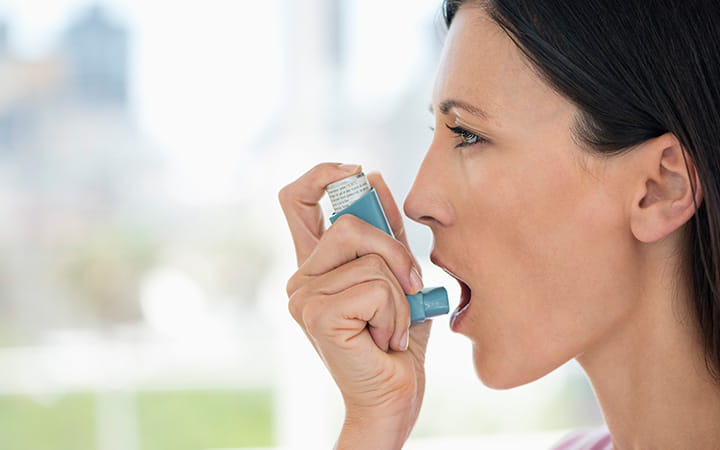COVID-19 and Asthma: What You Need to Know
August 01, 2020

Updated May 2021
The COVID-19 pandemic is scary for everyone, but for people with asthma, many fear that they will have a worse outcome or be more likely to get COVID-19.
Yet it is important for patients to understand what the current data on asthma and COVID-19 is saying, says Nancy Wasserbauer, DO, an allergy and immunology specialist with UH Westshore Primary Care in Rocky River, UH Broadview Heights Health Center and UH North Ridgeville Health Center.
“At this time, there is no evidence of increased infection rates in those with asthma,” Dr. Wasserbauer says.
What the Research Says
There has been one report — a Centers for Disease Control and Prevention Morbidity and Mortality Weekly Report from April 8, 2020 — suggesting that asthma may increase the risk of hospitalization from COVID-19 in 18-to-49-year-old adults. However, the study is based on a small number of patients.
On the opposite side are data from several cities and countries with high COVID-19 infections where asthma was under-represented in those who died from COVID-19.
"Over the last year, many publications have examined this relationship and we now know more," Dr. Wasserbauer says.
While these numbers may change as more research emerges, there is less data on non-hospitalized patients, so it is difficult to make an accurate assumption when we don't consider all patient risk factors, Dr. Wasserbauer says.
“In the current pandemic, the best thing a person with asthma can do is to make sure their asthma is under control and to keep it there," she says. "Stopping a controller medication will put the person at risk for developing an asthma exacerbation, and treatment of an exacerbation will likely require going to the emergency department or urgent care, where the individual has a much higher risk of being exposed to someone with COVID-19 or other infection that may lead to an asthma exacerbation."
Misconceptions
Dr. Wasserbauer says some misconceptions regarding asthma and COVID-19 include:
- Early reports of systemic corticosteroids being associated with death from COVID-19 are being extrapolated to include ALL steroids as being dangerous. However, inhaled corticosteroids are safe and necessary for patients with asthma to continue to use in order to prevent exacerbation.
- Systemic corticosteroids can and should be used to treat an asthma exacerbation, even if it is caused by COVID-19. It is always important to look at individual patient risk factors when determining risks of severe illness due to COVID-19 when making treatment decisions.
- Online discussion of nebulizers is causing confusion for some, as this is misconstrued to indicate that someone can catch COVID-19 from using a nebulizer. If patients require treatment with nebulized medications, such as albuterol or atrovent due to asthma, they should start treatment early and repeat until better according to the individual treatment plan they have discussed with their doctor. However, if a person with asthma who is receiving nebulized treatment has COVID-19, they could spread to others nearby due to the respiratory droplets created through the nebulizer.
“The bottom line for people with asthma during this pandemic is to keep taking your controller medication and inform your doctor of any increased symptoms or concerns that you may develop," Dr. Wasserbauer says. "And of course, remember to be sensible with social distancing, masking up and keep washing your hands."
Related Links
The team of pulmonary experts at University Hospitals combines years of experience, specialized training and innovative asthma treatments to help manage asthma, especially if it’s moderate to severe. Learn more about asthma services at University Hospitals.


